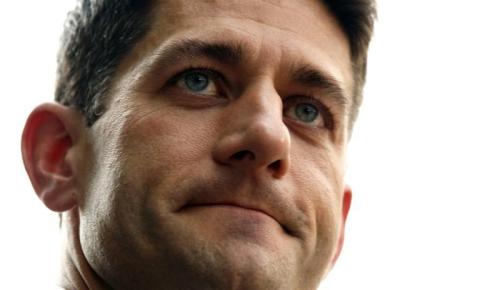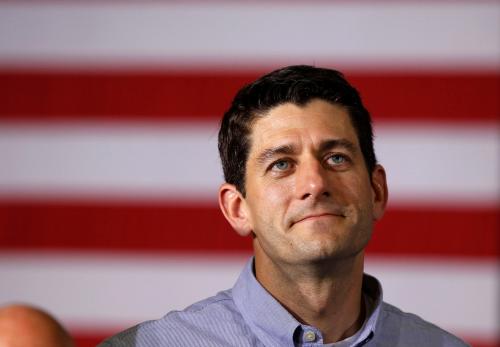Mitt Romney’s selection of Paul Ryan as his running mate has moved Medicare to the center of the 2012 presidential campaign. Democrats have accused the Republican ticket of planning to “end Medicare as we know it” by turning it into a voucher plan that would leave seniors exposed to large and rising out-of-pocket costs. For their part, Republicans have accused President Obama of cutting Medicare by $716 billion to expand Medicaid and fund other provisions of the Affordable Care Act. Democrats have retorted that House Republicans overwhelmingly voted for a budget, drafted by Paul Ryan, that cut Medicare by the same amount and diverted the funds to purposes other than health care.
This brief lays out the basic facts about the Medicare cuts. A subsequent brief will discuss the issues raised by the broader structural changes to the program that Republicans have proposed.
Where did the $716 billion figure come from?
In July, 2012 House Republicans asked the Congressional Budget Office and the Joint Committee on Taxation to estimate the budgetary effects of the repeal of the Affordable Care Act as passed by the House earlier that month. In response to this request, CBO and JCT found that Medicare would be affected in the following way (over the 2013-2022 period):
-
- Net spending for Medicare Part A (hospital insurance) would increase by $517 billion.
-
- Net spending for Medicare Part B (medical insurance) would increase by $247 billion.
-
- Net spending for Medicare Part D (prescription drug benefit) would decrease by $48 billion.
-
- In total, “spending for Medicare would increase by an estimated $716 billion.”
Did Obama “cut” Medicare by $716 billion?
ACA made significant changes to Medicare to curb the program’s expected growth rate. Reforms to Medicare were in the form of savings, reductions and cuts. According to the CBO, these reforms amounted to $449 billion in savings—half the cost of the ACA. There were no cuts in benefits under the ACA. Indeed, benefits were improved. The savings come largely from cuts in the reimbursement rates to hospitals and private Medicare Advantage plans.
But how did the CBO’s estimated $449 billion in savings (or cuts) turn into $716 billion? The answer involves the Act’s extended phase-in period. The first estimate was done a few days before the law was enacted and covered the ten year period 2010-2019, but the bill doesn’t go into full effect until 2014. The second estimate is also from the CBO but was done in 2012 in response to Republicans’ proposed repeal of the law. That estimate covers the ten year period 2013-2022. The second estimate covers nearly 10 years of the bill’s full implementation, versus 6 to 7 years in the first estimate, turning $449 billion in reductions into $716 billion.
Did Ryan “cut” Medicare by $716 billion?
If Obama did, so did Ryan. In his budget proposals, Ryan calls for a complete repeal of the ACA, except the changes to Medicare. Ryan’s plan keeps the same savings, reductions and cuts in place.
So what’s all the hubbub about?
After passage of the ACA, Congressional Republicans attacked the Democrats for cutting Medicare, a talking point used in many 2010 stump speeches. Yet many of these Republicans voted for Ryan’s budget, which did the same thing. Romney, meanwhile, has said that he would repeal the ACA completely, including the changes to Medicare, putting him at odds with his new running mate. Evidently, Romney’s professed admiration for Ryan’s budget does not extend to all its details.
Democrats point out that the ACA directs the savings incurred from Medicare changes back into the health system – to help pay for the Medicaid expansion, fill the “donut hole” in prescription drug coverage, and pay for more preventive services. Ryan therefore accuses Obama of robbing Medicare to pay for ObamaCare. The Democrats counter by saying that Ryan, whose plan does not specify where the savings will go, will be used to pay for his tax cuts to the wealthy and increases in military spending. While it’s hard to assess the validity of this claim, it is pretty clear that Ryan would not use the revenues from Medicare changes to fund either Medicaid or domestic spending, both of which his budget cuts significantly.
What’s at stake for beneficiaries?
It’s technically correct to say that the Affordable Care Act does not cut benefits. The question is whether reductions in payments to health care providers will impair either access to health care services or the quality of those services. While there are some indications that providers are beginning to pull back from the program and that waiting periods for care may be increasing in some jurisdictions, it is too early to know for sure.
What’s at stake for the country?
Government health care programs are by far the fastest-growing portion of the federal budget and lie at the heart of the long-term fiscal challenge. It is too early to tell how successful the ACA will be in slowing the rate of increase in health care costs. But even if it meets optimistic expectations, the growth of public health care programs will continue to outstrip the revenues available to fund them. At some point the American people will have to decide whether to close this gap with programmatic changes, tax increases, or some combination of the two.
The Brookings Institution is committed to quality, independence, and impact.
We are supported by a diverse array of funders. In line with our values and policies, each Brookings publication represents the sole views of its author(s).






Commentary
Medicare Cuts: What Is the Fight About?
August 15, 2012